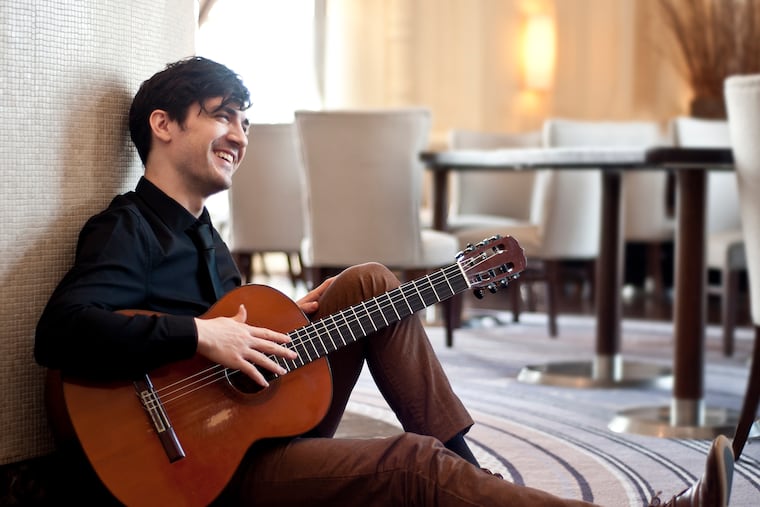Philadelphia’s Astral Artists, that has ‘looked out’ for musicians for decades, is now closing
'It's hugely saddening and disappointing,' said Astral founder Vera Wilson.

Astral Artists, the small but important Philadelphia arts group that has boosted careers and fostered the artistic development of classical musicians nationally, is shutting down. Facing what leaders describe as an increasingly difficult arts climate, the group will produce two more concerts this fall, set the musicians from its current roster on a path, and then close its doors.
The exact timing is uncertain, but the end will come quickly — by the end of the nonprofit’s current season or before.
A variety of factors contributed to the decision, which was approved by the Astral board Sept. 27, including some higher expenses and increased difficulty raising money from foundations and individuals, said Lourdes Starr, president and CEO.
Starr and the board concluded that “the model as it stands is not sustainable,” she said.
Astral explored merger possibilities with other organizations and studied the feasibility of a fundraising campaign to save the 32-year-old group, Starr said. “We did not leave any stone unturned, but finances are the foundation, and when it’s not steady we can’t pretend.”
Astral board chair John B. Wright II said founder Vera Wilson, who retired several years ago, “deserves all the credit in the world for recognizing [the need] and launching the organization and leading it for so long through so much and successfully producing artists who are contributing in many ways, whether on stage or academically. It’s a remarkable achievement and I think we all share a degree of pride in being some small part of it. It’s very hard to let it go.”
Astral Artists joins a growing list of Philadelphia arts groups large and small that, since the pandemic era, have either folded (the University of the Arts, Philly Pops); merged (the Philadelphia Orchestra and Kimmel Center); or substantially altered their business model (Pennsylvania Academy of the Fine Arts).
Wilson founded Astral in 1992 as a bridge for highly accomplished musicians between college graduation and the professional world. It has provided the personalized career advice of a professional artist manager, bookings for concert appearances, relationships with collaborating musicians, and commissioned new work.
“For me it’s hugely saddening and disappointing,” said Wilson, who withdrew from Astral over a number of years until stepping down from the board in 2022. “What I am going to take away is that it was a joy for me to found Astral, to create Astral, and, over the years I was part of it, to develop this extended family of young musicians with enormous talent.”
Wilson said she remained available to Astral’s musicians for advice and questions. “I don’t have an organization behind me anymore, but it is still the same mission in my mind.”
Through Astral’s own concerts, both in Center City concert halls and in area retirement homes and schools, the listening public got in on the ground floor of some major careers, including those of pianists Simone Dinnerstein, violinist Benjamin Beilman, cellist Clancy Newman, double bassist Xavier Foley, flutist Jasmine Choi, soprano Sarah Shafer, and bass-baritone Eric Owens.
“I really think all of the foundations for what I wanted to do, and what I’ve been doing in my professional life started off at Astral,” said Dinnerstein. It was for an Astral performance that the pianist performed for the first time a piece that became a cornerstone in her artistic development: Bach’s monumental Goldberg Variations. “Vera’s vision was that we think of our careers in an artistic way — what were our individual voices?”
“It’s a loss, for sure. Astral has been an important organization on our landscape,” said Miles Cohen, artistic director of the Philadelphia Chamber Music Society, which has sometimes booked artists identified by Astral. “For young musicians it’s just another challenge they have to face now. In Philadelphia there isn’t another place for them to go that will look out for them.”
Astral, which provides its services to its musicians at no charge, develops its roster through auditions and has 26 musicians on its current roster — pianists, vocalists, instrumentalists, and ensembles like the classical crossover group Astral Mixtape.
Astral plans to provide planning and mentorship to its musicians before closing “so that they leave with a comprehensive portfolio, public relations plans, contacts, and work plans for future projects,” said Starr.
Like all arts groups, Astral saw a drop in its audiences with the pandemic, but Starr said it was the combination of three factors that led to the decision to fold: the small arts group challenge of balancing short-term needs and cash flow with long-term need; a shift in the business model that increased some expenses; and the inability to attract the kind of individual and foundation funding it required.
Philanthropy accounts for almost three-quarters of Astral’s annual budget of about $860,000.
“It would have taken a degree of success in being able to reach some of these individuals that we had only really begun to cultivate and identify more foundations interested in this kind of work,” said Wright.
Ultimately, the leadership decided it wasn’t going to be possible, he said.
“I think Lourdes deserves all the credit in the world in trying to realize these ambitions in the face of some of the headwinds that we’ve faced. But they just proved to be too strong. We just couldn’t respond.”